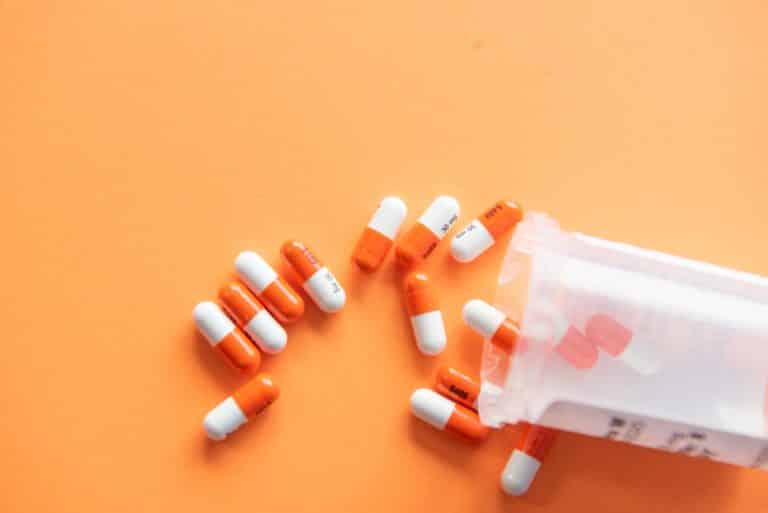Similar to Ritalin, Concerta (Methylphenidate) is a prescription stimulant in the same class as Ritalin; therefore, there is a similar potential for Concerta addiction and abuse.
Concerta and Ritalin are chemically identical; Concerta, however, has an extended-release formula lasting up to 12 hours.
What is Concerta?
Among other stimulants, Concerta’s chemical makeup closely resembles that of cocaine and amphetamine, and it is equally addictive.
Concerta addiction is more likely to develop in those who use the drug recreationally – without a prescription – and those who take more than their prescribed dosage.
When a Concerta addict stops taking the drug, they will experience unpleasant withdrawal symptoms, such as anxiety, fatigue, depression, and paranoia.
Concerta addiction can also manifest as:
- Having to take higher doses of the drug to feel its effects (tolerance)
- Feeling strongly compelled to use Concerta
- Adopting new methods of acquiring the drug to abuse it, whether legally or illegally
- When Concerta is causing problems with loved ones or obligations, use it even if the consequences are harsh
It is not advisable to stop taking Concerta without medical supervision for those who have an addiction to the drug. An increasing dose of the drug can be administered to the patient through a tapering program tailored to the individual. Patients can also receive treatment for withdrawal symptoms from a medical professional.
Understanding Concerta (Methylphenidate)
There are several different colors of Concerta pills, depending on their potency. They come in strengths of 18 mg, 27 mg, 36 mg, and 54 mg. Methylphenidate is the generic name for Concerta.
Methylphenidate is known by many other brand names, including:
- Aptensio XR
- Metadate CD
- Metadate ER
- Ritalin
- Ritalin LA
- Ritalin SR
Kibbles & Bits, Keddy Coke, Pineapple, Keddy Coke, Smarties, and Skittles are some street names for Concerta. Concerta is a Schedule II controlled substance.
Its primary use is for increasing attention spans and decreasing hyperactivity and impulsive behavior.
Several stimulants, including Concerta, are commonly used in the treatment of ADHD as they provide a calming effect for people with ADHD and similar conditions as well as an increase in focus. The result, however, will be hyperactivity and overstimulation if these medications are taken by individuals without ADHD. As well as increasing dopamine levels in the brain, the drug has a therapeutic effect on ADHD and similar conditions.
Concerta can be abused by taking more pills than prescribed, crushing it, and snorting it for a stronger high. Users can also inject the drug for a stronger high.
Concerta Addiction: Effects And Abuse
It is considered abuse of Concerta if you obtain or use it without a prescription. Additionally, those with a prescription must request the prescribing doctor’s approval before increasing their dose or frequency.
A concert affects the chemical balance in the brain and nervous system, contributing to hyperactivity and impulse control. Narcolepsy and ADHD are often treated with concert therapy. Some people abuse Concerta for its stimulant properties, despite its use to treat these conditions.
People Abuse Concerta
There are plenty of reasons that someone would abuse Concerta. They can give delusional benefits to your everyday life, and your day-to-day life.
Perform better academically
Concerta works as a stimulant, increasing focus and concentration as well as alertness and energy. Stimulants are commonly abused by college students.
Weight loss
Concerta is an appetite suppressant, so people abuse it to lose weight.
Getting high
When Concerta is taken by someone who is not being treated for ADHD, it can provide a high since it activates the reward system in the brain. High levels of dopamine promote both attention and pleasure.
Overdose Possibility
Concerta overdose can be life-threatening.
The effects of a Concerta overdose can be both physical and psychological.
Physical symptoms of a Concerta overdose include:
- Throwing up
- Seizures
- Anxiety
- Irregular or increased heart rate
- An increase in blood pressure
- Arrhythmia of the sinuses
- Having a dry mouth
- Tremors that are uncontrollable
- Skin that is flushed
- Cramps in the abdomen
- Having a fever
- Reflexes that are too active
- Breathing rapidly
- Restlessness
Overdoses of Concerta cause the following psychological symptoms:
- Manic-like condition
- A psychotic episode
- Threats or aggression
- Behaviors that are compulsive
- Having hallucinations
- Delusional thinking
- Feeling of paranoia
- Sense of disorientation
- Confusion in the mind
- Panic attacks/feelings of panic
It is well known that the use of Concerta can be extremely strenuous on the user’s heart and cardiovascular system. When Concerta is abused in the most severe cases, it can lead to cardiac arrhythmia, heart attacks, excessively high or low blood pressure, strokes, circulation failure, convulsions, seizures, comas, or even death.
Common Concerta Drug Combinations
Some college students take Concerta in conjunction with other drugs, such as alcohol. Combining Concerta and alcohol can have serious consequences.
Concerta is a stimulant that overrides alcohol’s depressant effects. Alcohol may not have the same effect on users as it would normally, causing them to drink more than they would ordinarily. This can result in alcohol poisoning, a potentially fatal condition.
Concerta can also increase the negative side effects of alcohol, such as nausea, headaches, and dizziness. The drug can also make the user anxious and affect their concentration.
Get Help Today And Overcome Concerta Addiction
Overcoming a Concerta addiction alone can be a scary process. That’s why New Leaf Detox is here to help you or a loved one today. Contact us to speak with our admissions team to get into our program. Our program is a highly trained staff of professionals ready and willing to help you.Start your journey with New Leaf Detox and get on the road to recovery.




